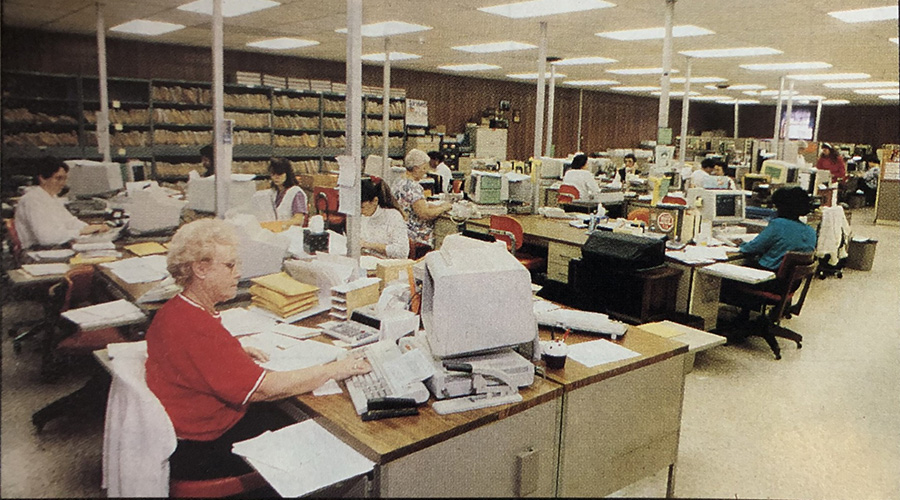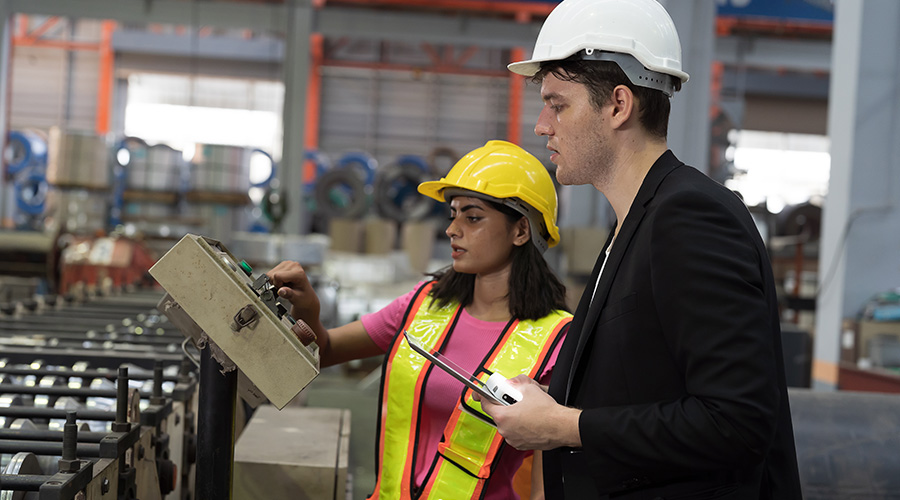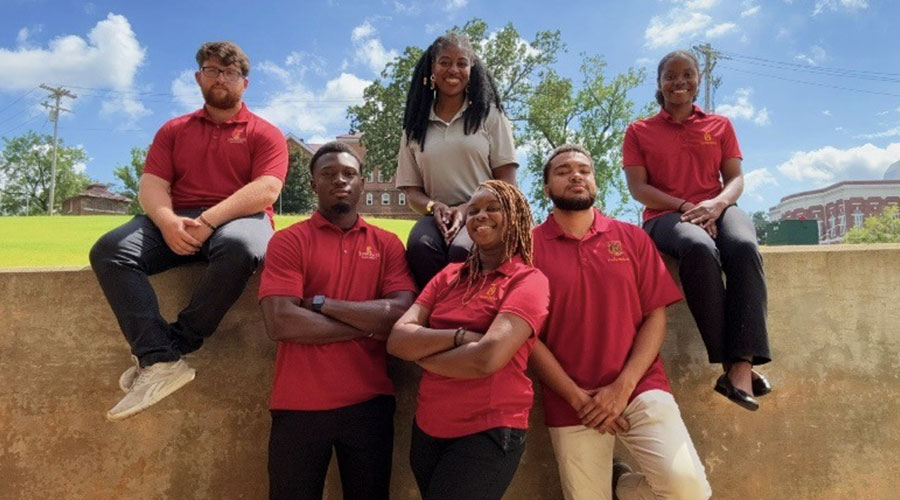Managers Incorporate New Communications Technology into Existing Strategies
OTHER PARTS OF THIS ARTICLEPt. 1: This Page
*Sean Arnold, Director of Maintenance, Hernando County Schools, Brooksville, Fla.
*Steve Ford, Facilities Manager, Brayton Purcell, Novato, Calif.
*Tim Holysz, Director of Landscape Services, Western Michigan University Kalamazoo, Mich.
Effective communication has always been a central component of efficient maintenance and engineering departments. While that fact has not changed, the ways managers, supervisors, and front-line technicians communicate has evolved a great deal. While some departments continued to use bulletin boards and daily in-person briefings, more are incorporating new technology, such as e-mail and smart phones, to strengthen communication and increase productivity and effectiveness.
What communication strategies have worked best for your department?
HOLYSZ: One of the best ones in our experience, besides all the new technology stuff, is actually sitting down at a staff meeting at least once a week to spend up to an hour or an hour and a half, face to face, to make sure everybody's on the same page. E-mail does that quite well, but that is really time-consuming. On the fly with smart phones, [technicians] can read e-mails pretty fast. But that face-to-face communication still has to happen.
ARNOLD: Cell phones seem to be the great strategy now because [communication is] real-time, and you can find the person, wherever they are. You can communicate directly with them. Another key tool is the computerized maintenance management system. Everybody in the district has access to it, and they can see status reports as to what our front-line staff is doing.
FORD: I meet with my staff daily. I try to have a five-minute briefing in the morning if we can. That has been the best way. Sometimes, I'll meet with people individually, but the group [meeting] seems to work because then we also know what others have on their agendas for the day.
How have your
communication strategies evolved in response to workers' changing information needs?
ARNOLD: With our customers being the schools and the students and staff, they want a quick response. It definitely has evolved to where we need to get people out in the field to get at the issue at hand and make sure we can correct the issue as soon as possible. Instead of a lot of windshield time, if a call can be made or if we can access a computer to get on the internet to look up a part or to call a technician — maybe one who has a little more experience — that's important.
HOLYSZ: There was a time not too long ago when nobody on our staff had any type of communication [device]. We decided to purchase two-way radios for them. In some cases, we do texting. In this day and age, you really need to look at all your tools in the toolbox. So again, 10 or 15 years ago, virtually none of our staff had radios. Now, everybody's got a radio, and our productivity has jumped tremendously.
How do you tailor your communication strategies to get the most out of employees?
ARNOLD: It's not an easy task. With real estate, it's location, location, location. With communication, it's training, training, training. We do a lot of training. We can expect people to do things, but if they're not trained properly on how to do that certain thing or how to communicate, that's where you can have some negative comments by your customers — or a failure to communicate.
FORD: I really try to be available to my staff, and by doing so, I get to know them and, ultimately, what communication strategy works best for each person. So developing the relationship with each individual has been really important to adjust my approach to give them the most I have to offer. I learn who communicates in what method. Some people are really good at reading e-mail and following it to a "T" and getting great results. Some people are really good with verbal instructions.
Is your department more productive because of stronger communication?
HOLYSZ: Yes, absolutely, 100 percent. There's no ifs, ands or buts that productivity has skyrocketed. How do we measure those things? It's awfully difficult without getting into a whole dissertation on how we track our time. I can tell you this, though. Just based on the smaller staff we've had over the last decade because of budget cuts — we have less personnel today than we did 10 years ago — we're accomplishing more, and that is very tangible. Is it directly related to the communication devices.
FORD: Without a doubt, that's true. Technology has made us more accessible to one another, and the department is definitely more productive because we can get answers to questions in a variety of ways, which can make things go more smoothly. We can get a hold of people when they're on the go and say, "Oh, yeah. One more little detail ..."
How does the ability to contact employees, no matter where they are, make them more accountable?
ARNOLD: We do keep close tabs on our employees, and that's for safety reasons and for productivity reasons. We expect each of the crews out in the field to call in for every job so we know why they're going out on their first job. Then we have them call in for a status report. From the status report, we can send them on to the next job, or we can tell them to come in for parts, for example.
FORD: It's important that they're available to take instruction or answer questions. Since it's fairly simple to contact them, they accept that important role and are more accountable than they would be if there were less communication. They pretty much anticipate that they're going to be called upon, and each one of them, because we're a relatively small department, has some specialized knowledge or skills that the others can tap into.
HOLYSZ: Because they're on the radio system, they know that we are the eyes and ears of our campus community because we're in such a visible place. We're always out there. We don't have any work inside buildings. We're always on the grounds, whether we're shoveling snow, plowing snow, mowing, mulching or planting trees.
How has more real-time communication affected your department's customer service?
ARNOLD: We get a lot fewer complaints, that's for sure. Our turnaround time is a lot quicker. Our response time is a lot quicker. The communication is extremely important when you're out doing a job. The people that have called you out for the repair, it's important that they get a status update. It makes them feel better about what is going on. They have an understanding of what's going on, and it stops them from constantly calling or putting in work orders that could be in duplicate or triplicate. ... They definitely appreciate it. We send out surveys quarterly, and we get a lot of positive results.
FORD: Real-time information increases your productivity overall, and the customers have definitely seen a difference in our response times. They can put out a request, and sometimes we can get to it immediately because we're in the right place at the right time.
What are the emerging challenges of new communications technologies?
HOLYSZ: It's hard for people to change. You get people my age, mid-50s, and the new technologies come out, and the young guys, they can't wait to get their hands on the new stuff. But [for] the older guys, it's difficult. They have a hard time changing. They get a new phone, and it takes a while to get used to that. I think that's probably the hardest thing, to change the attitudes of people and get people on board, to get them to not be afraid.
FORD: The challenge with [a smart phone] is that you tend to rely on it, and if it fails, it puts you in a bind. I'm in Northern California, where cell service gets a little sketchy in a lot of areas, and I personally carry two phones so that I'm accessible almost anywhere I go. So for us, the biggest challenge is that you come to rely on it, and sometimes you forget that things can fail. You think that this won't happen to us, but occasionally, it does.
ARNOLD: The smart phone is a great tool, but the downside is probably the cost. The initial costs are coming down. But school districts are dealing with extremely tight budgets, so that makes it difficult to get this type of technology in everyone's hands. I would love it if every one of my technicians could have a smart phone or a tablet. That would increase our productivity and definitely impact our customer service in a positive way, but the cost is definitely prohibitive.
Related Topics:











